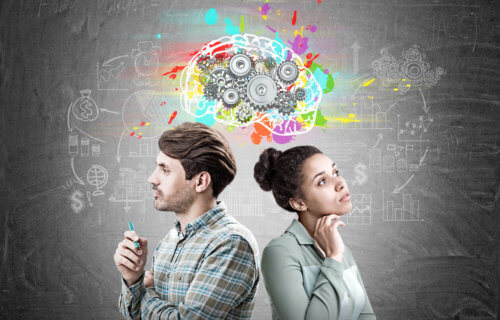LUND, Sweden — If you’re trying to learn something new, it might help if the information comes from someone you really like or admire. The human brain is “programmed” to retain knowledge when it comes from someone we favor, according to neuroscientists in Sweden. Conversely, we are less likely to learn something new when the information comes from people we dislike.
Like a computer that needs updates to better protect its hardware, the human brain uses memory to learn from new experiences and improve its existing library of knowledge. This information helps draw new conclusions about the world and even make assumptions about situations where people lack direct experience.
Think about the last time you were at a park. You might have seen a man walking with his dog. A few hours later, you see the same man and dog walking down the street, but this time with a woman. Even though you have never seen the two people together, your brain would infer they are a couple.
“Making such inferences is adaptive and helpful. But of course, there’s a risk that our brain draws incorrect conclusions or remembers selectively,” says Inês Bramão, an associate professor of psychology at Lund University, in a media release.
The findings came from a study where people had to remember and connect different objects, such as a bowl, ball, spoon, scissors, or other objects seen in daily life. Additionally, the participants defined what they liked versus disliked based on their political views, eating habits, hobbies, favorite sports, and other preferences.
Throughout the experiment, the researchers noticed an interesting trend: people found it easier to remember and connect the new information across learning events when it was presented by someone the participant liked. Similarly, people had a harder time connecting the information to existing knowledge when it was provided by someone they disliked.

Study authors say the findings are important in understanding how people think, especially in the areas of politics that contain many favorable and unfavorable candidates. For example, imagine a political party looking to raise taxes to cover public healthcare costs. Taxes get higher and you see better service at your local urgent care center after a couple of months. If you supported the higher tax bill, you’re more likely to base the new healthcare improvements on the tax increase, even if the improvements were because of something else.
The new research aligns with past memory studies which found that people learn differently depending on the source. According to the authors, people are more open to absorbing new information and updating previous opinions when it comes from a favored group. This might be because these favored groups align with their preexisting beliefs and ideas.
Selectively choosing what information to assimilate into the brain can also help to better understand how the brain deals with polarization. The bias towards a particular group can influence how neutral information is perceived as well.
“Particularly striking is that we integrate information differently depending on who is saying something, even when the information is completely neutral. In real life, where information often triggers stronger reactions, these effects could be even more prominent,” says Mikael Johansson, a professor of psychology at Lund University and co-author of the study.
The study is published in the journal Communications Psychology.
